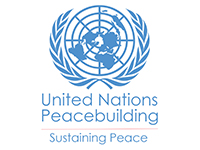BOMI
Bomi County is situated in western Liberia, bordered by Montserrado County to the southeast, Grand Cape Mount County to the northwest, and the Atlantic Ocean to the southwest. Tubmanburg serves as the capital of Bomi County. Bomi County was created in 1984 when it was carved out of Montserrado County with a population of 84,119 people. The economy of Bomi County is largely based on agriculture. Residents engage in the cultivation of crops such as rubber, oil palm, rice, and other subsistence crops. The county’s coastal location also makes fishing a significant economic activity. Bomi County is home to various ethnic groups, contributing to the cultural diversity of the region. The major ethnic groups include the Gola and Kpelle. Access to education and healthcare services is vital for the well-being of the population. Ongoing efforts are made to improve these social services in the county.
In Bomi County (Klay, Gbah Town, and Tubmanburg City), Youth Crime Watch of Liberia implemented a 9-month Community Security and Peacebuilding Project with funding support from UNDP Liberia:
- With funding support from the UN Peacebuilding Fund office through UNDP Liberia, Youth Crime Watch of Liberia successfully implemented a nine-month project titled “Enhancing a Peaceful Electoral Environment and Community Security” across five counties including Rivercess County, with a specific focus on key locations such as Klah, Tubmanburg City, and Gbah town in Bomi County. The overall objective of this project was to strengthen the capacities of various stakeholders, including 100 joint securities, 225 community watch teams, representatives from political parties, and local authorities.

The Project team successfully collaborated with key partners including the Liberia Peace Building Office, the National Election Commission, the Independent National Human Rights Commission, the Liberian National Police, and the Ministry of Justice. The primary focus of the project was to foster a peaceful electoral environment by implementing targeted interventions in conflict prevention and addressing the potential escalation of insecurity, human rights violations, and electoral violence leading up to, during, and after the 2023 General Elections in Liberia.
A key component of the project involved enhancing policy reforms and reinforcing existing Early Warning and Response (EWER) mechanisms. This included mainstreaming human rights, gender, and youth-based approaches, particularly at the grassroots level. The project played a vital role in supporting responses to both actual and perceived triggers of electoral violence by integrating a diverse range of actors into the Early Warning and Response mechanism.
In terms of beneficiaries, the project had a significant impact on over 1,500 direct and indirect recipients, including joint securities, community watch teams, political party representatives, and local authorities. Through a complete and joint approach, the Project effectively contributed to creating an environment conducive to the just-ended peaceful elections, while simultaneously addressing potential challenges related to insecurity and electoral violence. The success of the project underscores the importance of multi-stakeholder partnerships in promoting sustainable peace and security within the context of democratic processes.






